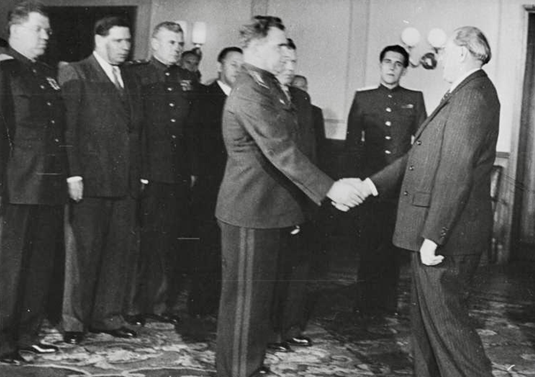The Reward of Others’ Success
- Maria A. Kithcart

- Jan 17, 2022
- 2 min read

Pictured: Colonel-General V. I. Chuikov with his soldiers celebrating the victory over the Nazis, Berlin, 1945.
Authentic leaders celebrate their teams’ successes and are personally, deeply gratified by their achievements. When a leader invests himself in others, he pours his heart and soul into the process. Marshal Chuikov was such a leader—making sure his troops were battle-ready and equipped for the tasks ahead. The reader can feel Vasily Ivanovich’s sense of pride in his soldiers in his books and articles, the same pride one can hear in his speeches about the famed 62nd—8th Guards Army. In his book titled In the Battles for Ukraine, Marshal Chuikov summarized the successes of his army in this way:
“The 62nd—8th Guards—Army passed through Ukraine from Kupyansk, from the Northern Donets to the Dniester. She passed with heavy battles, in the most difficult conditions, advancing, nowhere and never stumbling, not stepping back, not showing her back to the enemy. The attack of the Nazis in May 1944 also crashed on her stamina and courage. She victoriously carried the Guards banner across the Ukrainian soil, with which she still had to go through Europe to Berlin itself. But about the further path of the army [is] a separate story...
A little time passed, and the 8th Guards Army joined the troops sent to strike at Berlin. We liberated cities, towns, villages, farms, and everywhere the arrival of a Soviet soldier caused tears of joy, we were greeted as liberators. Residents of the liberated villages and cities joined our army.
The 62nd Army emerged from the crucible of defensive battles in Stalingrad. Its new life began on the Northern Donets; from a defense army, it turned into an offensive army. Renamed the 8th Guards, she, like other Guards formations, became a strike force in offensive operations. As part of the troops of the Southwestern Front, the 8th Guards Army was intended to break into enemy defenses. The experience of defensive battles was to be enriched by the ability to attack. It was a milestone, a transitional stage in the life of the army, every soldier and commander.”



